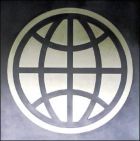World Bank returns to Sudan as donors plan comeback
By Lesley Wroughton
WASHINGTON, Jan 17 (Reuters) – The World Bank is reopening an office in Sudan after a 10-year absence, a sign of the international community’s desire to help a new power-sharing government with its reconstruction effort after decades of civil war.
 Ishac Diwan, the World Bank country director for Sudan, said in an interview on Monday the global development body was preparing an assessment of Sudan’s rebuilding needs for an April meeting of donor countries in Norway.
Ishac Diwan, the World Bank country director for Sudan, said in an interview on Monday the global development body was preparing an assessment of Sudan’s rebuilding needs for an April meeting of donor countries in Norway.
The assessment would precede a World Bank plan to manage foreign donations for Sudan from two trust funds – one for the north and one for the south, Diwan said.
A Jan. 9 peace agreement between the Khartoum government in the north and rebels in the south proposes ending Africa’s longest civil war by creating the unity government.
Despite the conflict, Sudan’s economy in the government-controlled north has prospered in recent years due to oil wealth and foreign business interests from Asia and the Middle East.
Under the peace pact, the unity government would equally divide the country’s oil wealth between the north and south.
However, analysts say reallocating resources to war-affected rural areas will strain the government’s post-war budget, which finished 2003 with a surplus of 1 percent of gross domestic product, according to International Monetary Fund figures.
Another obstacle to any peace dividend in Africa’s largest country is a separate ethnic war in western Darfur region. The United States has labeled the cleansing of ethnic groups by government-backed militias as genocide, and Khartoum has been threatened with international sanctions.
Diwan said donors will be cautious to fully back Sudan until the government works to resolve the Darfur crisis, which has displaced tens of thousands of people and threatened widespread starvation.
“What is needed is a political commitment of all the key players and it is quite clear it is going to take good news on Darfur to secure this commitment,” he said. “It is a very delicate time.”
Sudan’s foreign debt, which totals $20 billion including interest, also could hinder the immediate arrival of funds from global lenders like the World Bank and IMF.
In the 1980s and early 1990s, Sudan was one of world’s largest recipients of foreign aid until it stopped paying its dues to donors and the Paris Club of creditor nations.
The World Bank has been absent from Sudan since 1993 after the country defaulted on its debt, although it gave technical advice on wealth sharing in the recent peace process.
Diwan said Sudan should be eligible for debt relief under a global program for the world’s neediest countries. Such debt forgiveness would require Sudan to show economic discipline, something the Khartoum government already has done.
Unlike other countries emerging from conflict, Sudan’s economy has averaged 6 percent annual growth in the past few years, while inflation is in the single digits and government areas have strong business ties with Asia and the Middle East, according to IMF reports.
A major economic transformation between 1996 and 2002 brought rapid growth in Sudan’s transportation, communications, manufacturing and electricity generation sectors, which received the highest share of foreign direct investment after the oil sector, said an IMF report from December 2003.
Foreign direct investment increased to $645 million in the first half of 2003 compared with $230 million in the same period in 2002, the IMF statistics show.
Despite such strong economic growth in the north, Diwan said Sudan had widespread poverty with annual per capita income in some of its worst-affected regions below $100 a person, compared to a national average of over $600.
The need to spread the wealth and rebuild the south and other war affected areas shows how much Sudan will have to depend on foreign help, he said.
Giving half the oil wealth to the south means “the north cannot afford in the short-term to push a lot of resources to areas affected by the war,” Diwan said.
If oil production goes up and the country realizes a peace dividend from reduced military spending – currently about 30 percent to 40 percent of the budget – the government might be able to assume a bigger role in reconstruction, he said, “but in the short-to medium-term there is a need for large international support.”
